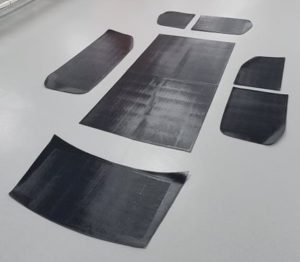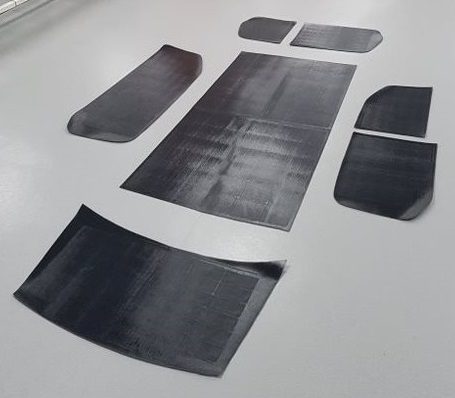Monocrystalline solar panels are a type of PV panel which can be used for roofs and off-grid solutions like vehicle fleets, boats and outbuildings.

A PV (photovoltaic) panel is just a technical name for a solar panel. They are called PV panels because each panel comprises of small photovoltaic cells which are interconnected.
Monocrystalline panels are just one variety of PV panel. There are, in fact, three main types of PV panels and these vary in efficiency when it comes to efficiency:
- Monocrystalline PV panels – Most efficient PV panel
- Polycrystalline PV panels – The 2nd most efficient PV panel
- Thin-film PV panels – Least efficient PV panel
Why are Monocrystalline solar panels the best?
Monocrystalline PV panels are made from a single piece of silicon, therefore making it easier for electricity to flow through. They have a pyramid cell pattern which offers a larger surface area enabling monocrystalline PV panels to collect a greater amount of energy from the sun’s rays.
In contrast, polycrystalline PV panels are created from several parts of silicon being melted together which makes it more difficult for electricity to flow through. Thin-film PV panels are made from one or more layers and are the least efficient photovoltaic panel available.
With the advantages of monocrystalline solar panels over alternative PV panels they are considered the highest-quality option on the market.
How do Monocrystalline PV panels work?
When the sun shines onto the photovoltaic cells, an electric field is created via a complex process which is controlled by the equation of P (power) = V (voltage) x I C (current).
The PV cells which are used within monocrystalline solar panels are very small but when they are combined, they are extremely efficient.
On days when the sun is particularly strong, more energy is produced. However, PV panels do not require direct sunlight to work and will even produce energy on a cloudy day.
What can Monocrystalline PV panels be used for?
As they are so efficient, monocrystalline PV panels will produce more energy when occupying the same area mass than alternative PV panels. This makes them highly suitable for vast-scale applications like vehicle fleets and large buildings.
Such is the efficiency and effectiveness of monocrystalline PV panels they are well suited for both residential and commercial projects. In terms of industry sectors, monocrystalline solar panels are used within automation, leisure and local authority, among others.
Flex Solar Module – Highest-grade Monocrystalline PV Panel
At Solar Capture Technologies, we have recently developed and manufactured a Monocrystalline PV panel, the Flex Solar Module.
This is the most revolutionary Monocrystalline PV panel of its kind, featuring pre-graded photovoltaic cells for maximum output.
Flex Solar Modules have been made with an aerospace-grade back-sheet and are incredibly durable and lightweight.
Advantages of Flexible Monocrystalline Solar Panels (Flex Solar Module)
Highly suitable for large-scale solar integration including vehicle fleets
Provide an off-grid solar solution for domestic and commercial applications
Made with anti-slip/anti-reflective coating
Fire and smoke retardant
Guarantee of no hot spots
Strong and reliable mounting solution
